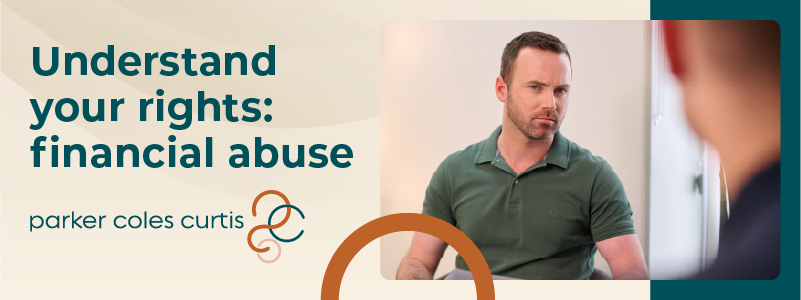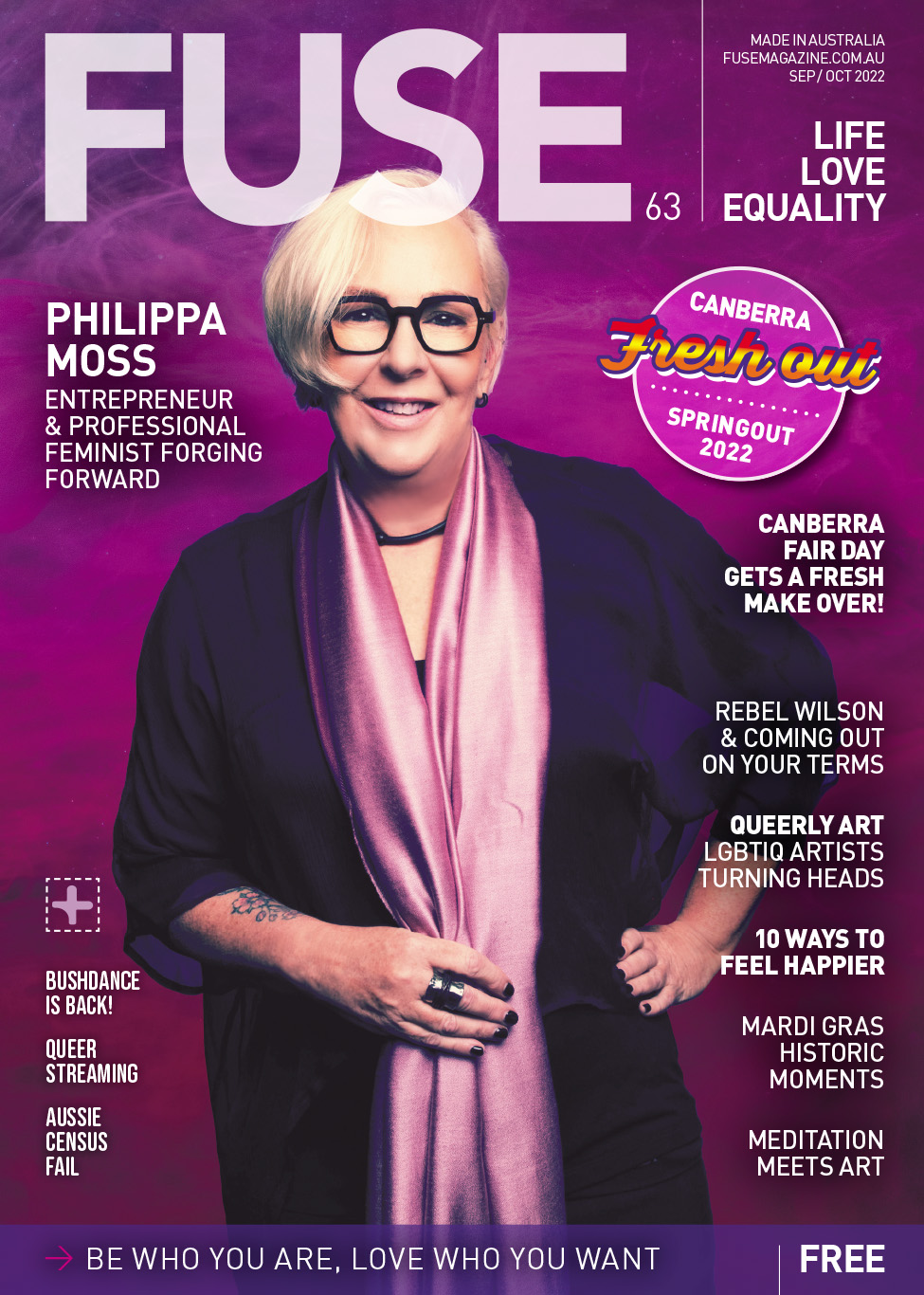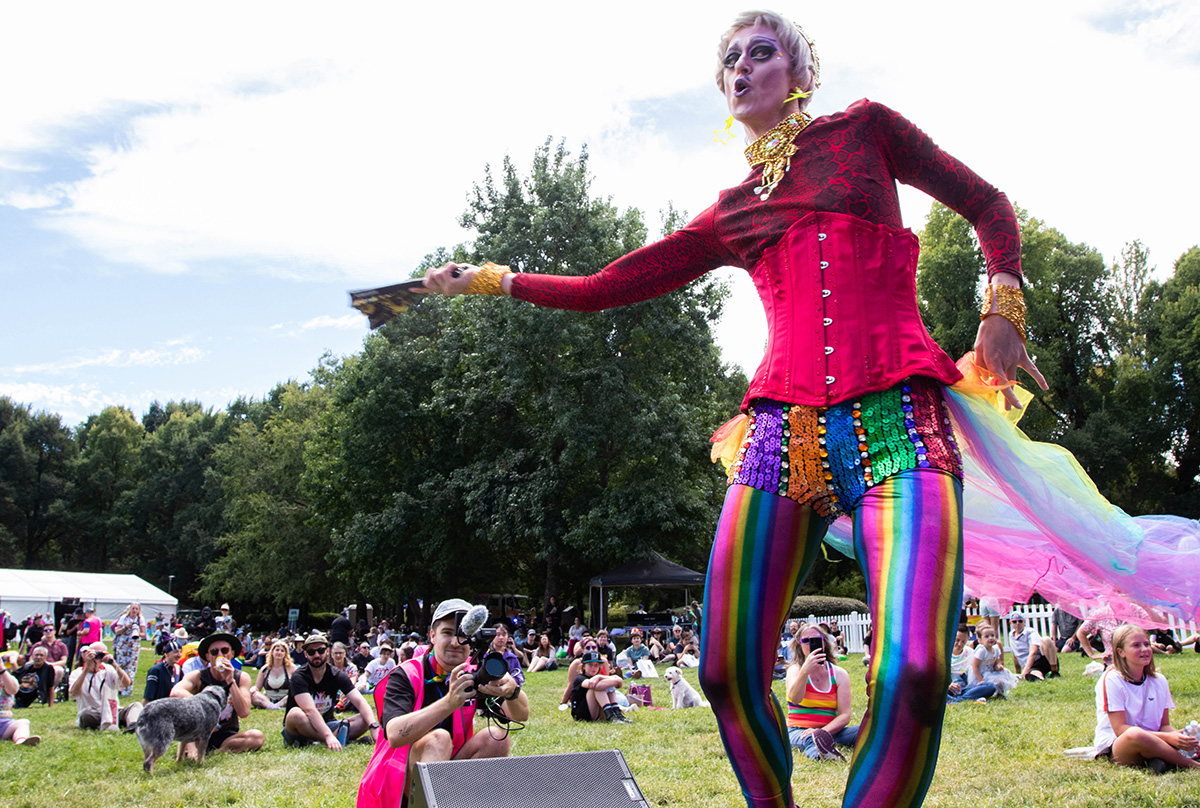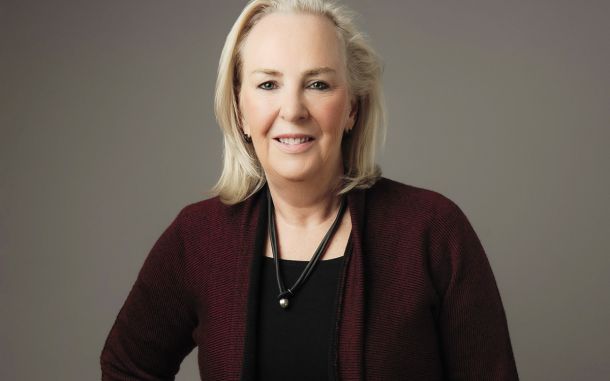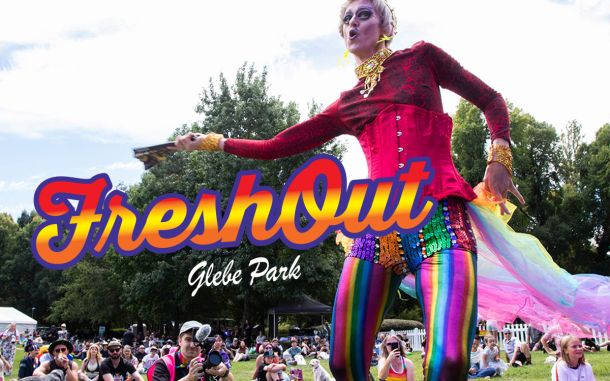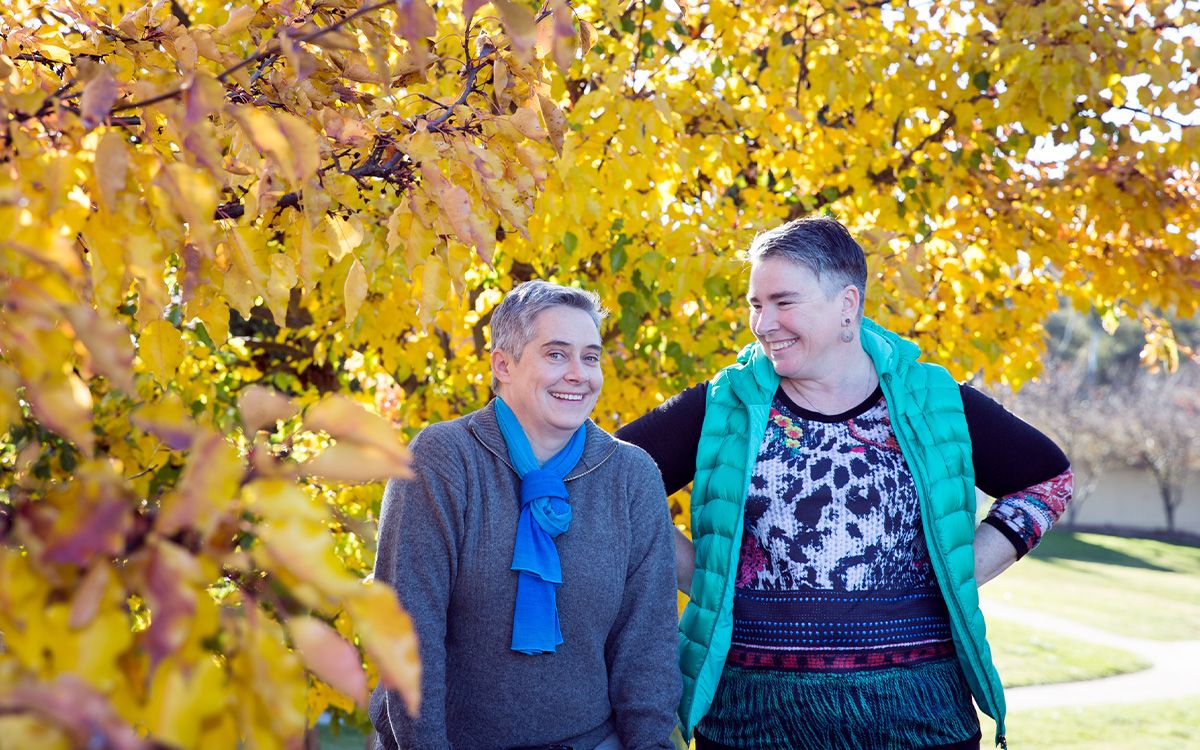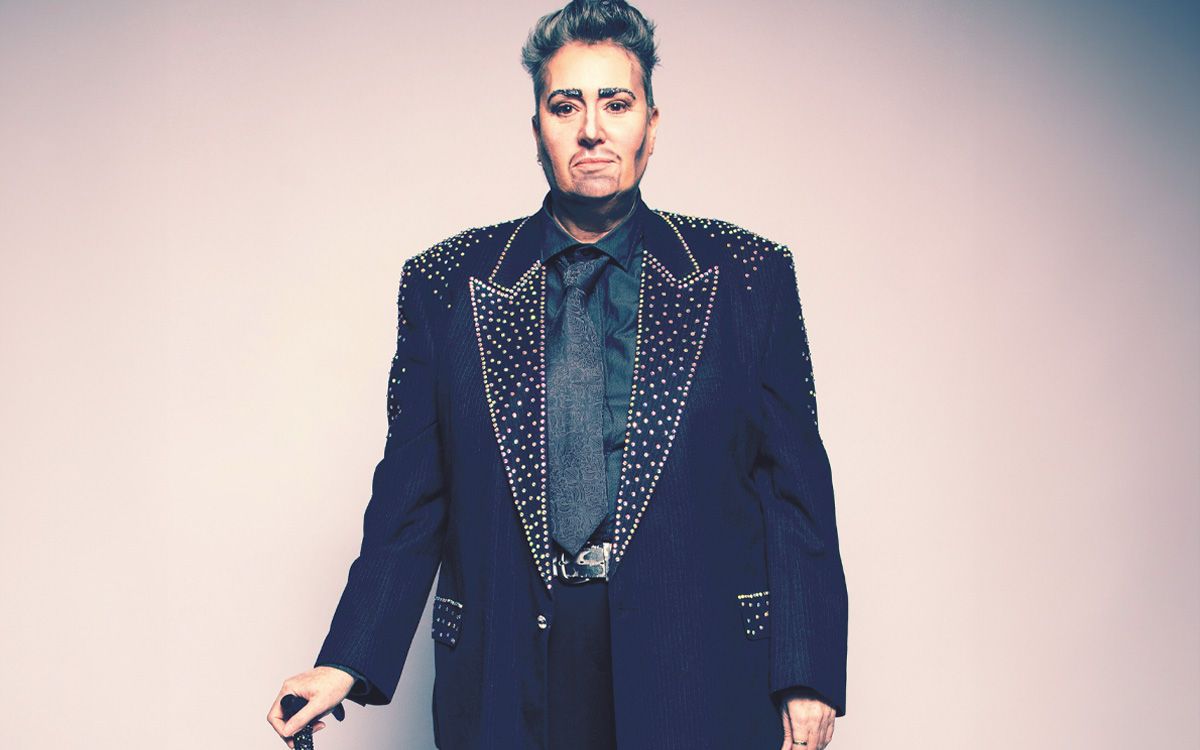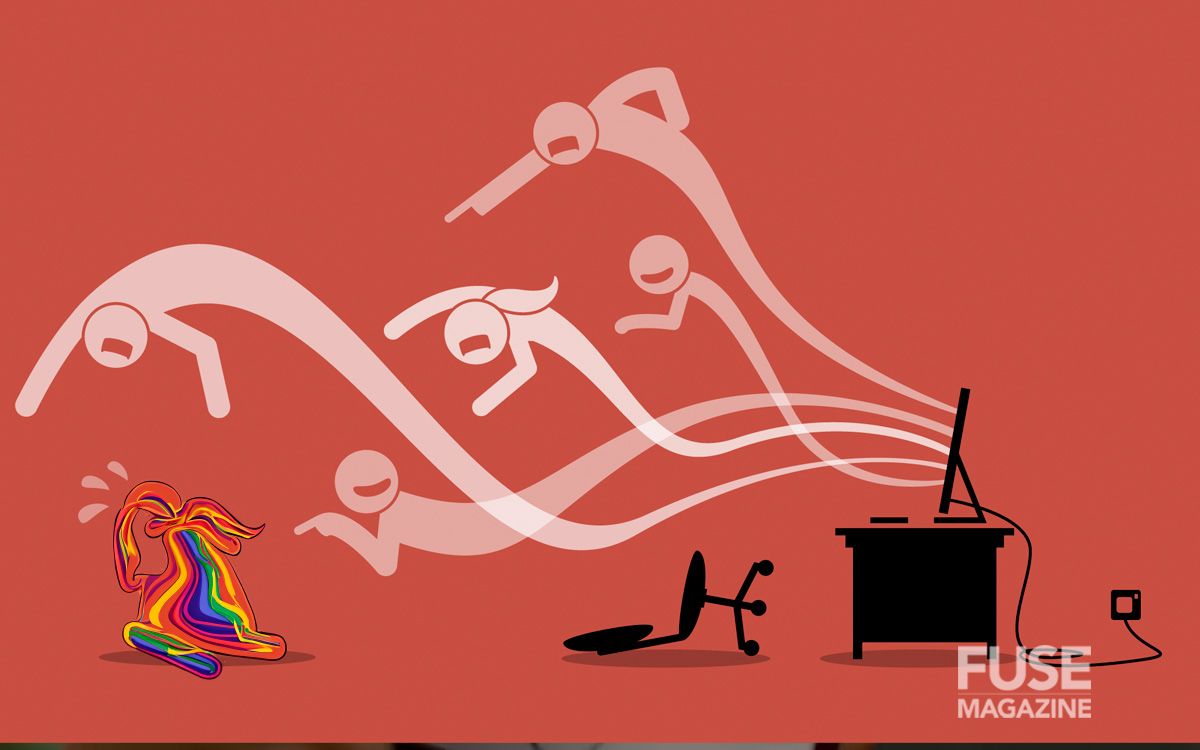We asked... Philippa Moss
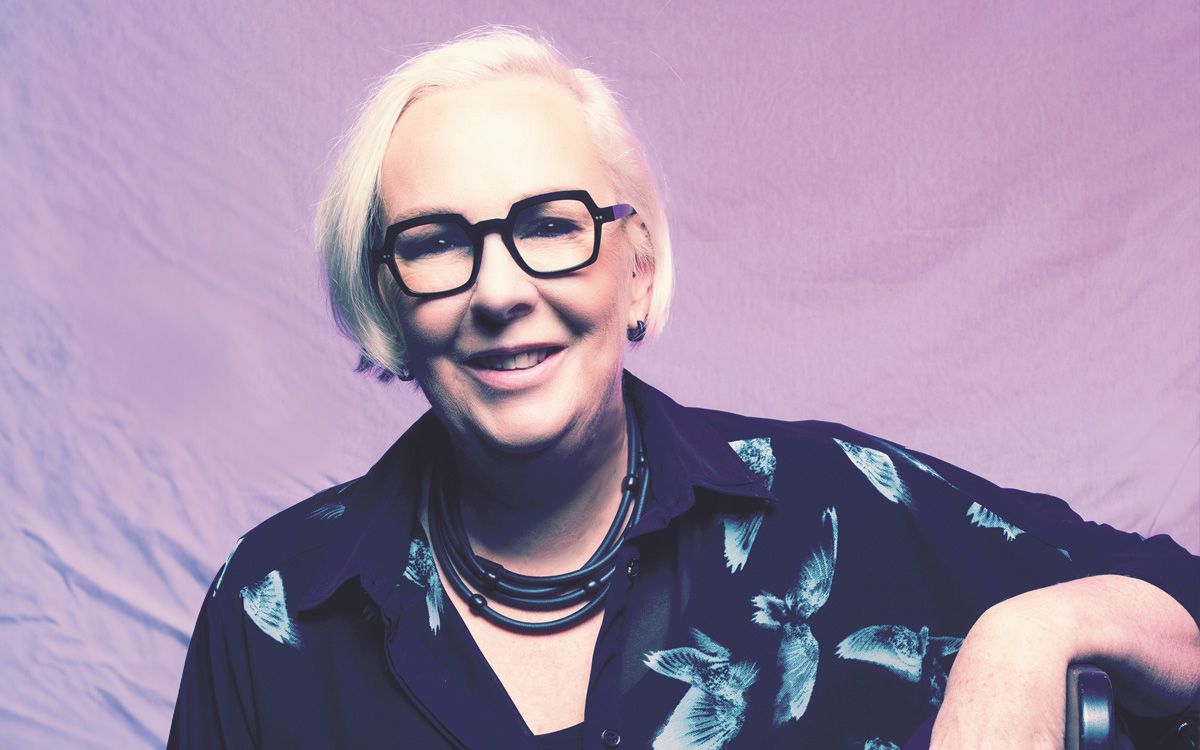
In 2015 Philippa was awarded the ACT Telstra Business Women’s Award for Purpose and Social Enterprise, along with the Australian Institute of Management’s Not for Profit Manager of the Year (ACT) award. Over the past ten years, at the helm of Meridian, Philippa has ushered in and watched as change washed over our communities.
We spent a little time chatting to Philippa to get her thoughts on how things have evolved over the years and where we might be heading in the future.
Meridian has a long history in Canberra; what would you say are the most significant changes you’ve seen happen in the organisation?
Without a doubt, the most significant change I’ve been involved in has been the rebranding of the AIDS Action Council to Meridian.
So many people ask why we chose the name Meridian for the organisation. The word meridian has many different meanings, and all of them help tell the story of who we are and what we represent: community, health and action. Meridian lines show us when and where we are in the world — they give us a sense of place. Our vital energy travels along the meridian lines in our bodies. And a meridian achievement is performance at its peak.
For us, this means establishing and maintaining balance and always striving for improvement in our bodies, minds and communities.
Our new name also pays homage to Canberra’s first and only community-owned, community-led social organisation for LGBTIQ+ communities — the Meridian Club. A friendly space that hosted many community events and activities, the Meridian Club lives on in spirit through our new identity.
I remember (many years ago) attending a ‘Coming Out’ group for young guys AT the AIDS Action Council. By happenstance, I found the details on a flyer at the UNI. I remember feeling disconnected, unsure of myself and confused at the time. Do you think with today’s technologies, young people find it easier to connect with services, and do you still run these face-to-face style workshops?
I, too, attended a “coming out” group at the then AIDS Action Council about 25 years ago. It is incredible to think about that now, all these years later — I remember I was excited but also a little scared.
Certainly, today there are so many sites, dating apps, online forums and technology for people to meet others and connect, discuss important issues and find community. But nothing replaces a face-to-face-style workshop. Meridian regularly facilitates workshops about online safety — because looking out for yourself and your safety should come before trying to get lucky.
Meridian facilities a face-to-face group for queer women, including cis, trans and non-binary people who identify as a woman or with the feminine. Many might remember it as ‘Stepping OUT’, now called the Wednesday Club. It’s very popular. We have a group called MAGNET — Mature Aged Gay Men’s Network, and we regularly run new diagnosis workshops for HIV positive people of all sexualities and genders.
All our groups are primarily facilitated by peers who are trained volunteers. We put a lot of time and energy into our volunteers, and this is such an important role that we benefit from and value so greatly.
FUSE68. Cover photo by Nathan J Lester.
We’ve certainly come a very long way over the past few decades. What areas of equality do you think need the most attention now.
The majority of LGBTIQ+ people lead happy, healthy, fulfilling lives. However, research and real-life experience has found that sexually and gender diverse people face increased depression and anxiety and up to twice as much abuse or violence (including physical, mental, sexual or emotional) than their heterosexual counterparts.
This prejudice and discrimination adds an extra layer of risk on top of biological, social, environmental and psychological factors that can lead to depression, anxiety and minority stress.
At Meridian, we advocate strongly to government for increased support for our communities to address mental health, drugs and alcohol, and intimate partner violence — these are the three areas that need the most attention.
I would be remiss if I didn’t mention the decriminalisation of sex work. This is absolutely on our agenda at Meridian, this needs attention now because it is a human rights issue. Removing criminal prosecution of sex work goes hand-in-hand with recognising sex work as work and protecting the rights of sex workers through workplace health and safety standards.
COVID has had an enormous effect on everybody. Do you think it’s changed how people interact with each other and with Meridian as an organisation?
Meridian moved a lot of our work online during COVID, it took some adjustment, but we got there. It’s more difficult for counselling and psychological services, as many clients prefer the face to face when doing therapeutic work. We mostly couldn’t hold our workshops but did manage to do some online. However, the ongoing impacts of COVID have highlighted inequities experienced by LGBTIQA+ communities.
Events and activities that celebrate community were not able to be held. And many in our community were isolated and lonely, which impacts health and wellbeing. So yes, COVID has taken its toll.
How do you think Meridian may change in another decade or more?
I think there will always be a role for Meridian: it has changed significantly since its inception in the early 80s and it is likely to evolve and change even more. HIV prevention, treatment and support continue to be central to our mission. But with a new name, we’ve made space for the many other programs and services we now offer, and all the people who could benefit from them.
We want everyone who uses our services to feel part of a bigger community. A hub of community connection and service provision, Meridian is where people with diverse sexualities, genders, bodies and relationships get support and/or come together. It’s a place where everyone belongs, and we hope this grows and evolves into the future.
We plan to grow in the primary health care space because this is where we see the greatest need. Over time we have had more and more requests for tailor-made training and education programs, calling on our expertise to improve the broader community’s understanding of HIV, sexuality and gender diversity, stigma and discrimination, inclusivity, and sex work. This area will also grow and evolve over time.
FRESHOUT. Photo by Nathan J Lester.
Exciting news, with SpringOUT coming back after two years of lockdowns, we’ve heard you’re giving Canberra’S Fair Day a makeover and a new name ‘Fresh Out’. Tell us a bit about that.
This year is a game changer, and I am so excited. Meridian is partnering with SpringOUT to bring the community a fresh vision of Fair Day, Canberra’s largest LGBTIQA+ community event. It will be held on Saturday 29 October 2022 in Glebe Park.
Fresh Out is a free event for LGBTIQA+ individuals, families and allies to express, affirm and celebrate pride. We want to highlight the contribution LGBTIQA+ individuals and groups make to the cultural fabric of Canberra and beyond.
Fresh Out launches the SpringOUT festival into the dynamic cultural landscape of the Canberra region, as well as appealing to the broader tourism market. Fresh Out welcomes back individuals and all groups who may have experienced a disconnect during the pandemic.
It will provide educational, cultural and creative spaces encouraging freedom of expression for all people of diverse genders, sexualities, bodies and relationships.
And finally, after the past two years of COVID dramas, heartbreaks and RESTRICTIONS, what advice would you give to people as they move forward?
Meridian brings community together to celebrate and nurture the rich diversity within all our communities and to strengthen our collective resilience to the adverse effects of stigma and discrimination. We recognise that every individual is unique, and at Meridian, we create a safe space so everyone can bring their whole selves to our services. We want everyone who uses our services to feel part of a bigger community.
We know that our communities are diverse — our health needs are not all the same.
But despite our differences, we share a common fight against stigma, discrimination and minority stress that continue to affect our health and wellbeing.
So my advice is to care for yourself and each other. If you’re feeling disconnected or overwhelmed, you can reach out to Meridian and get support. At Meridian we have your back!


